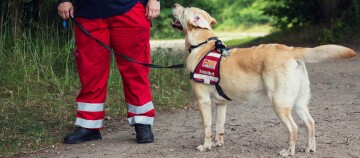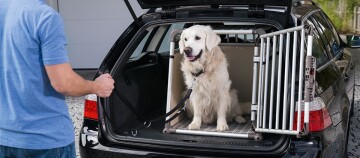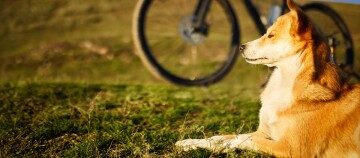German Boxer – Family Dog Ready and Happy to Apply for Any Position
07.10.2022 - Reading time: 3 minutes
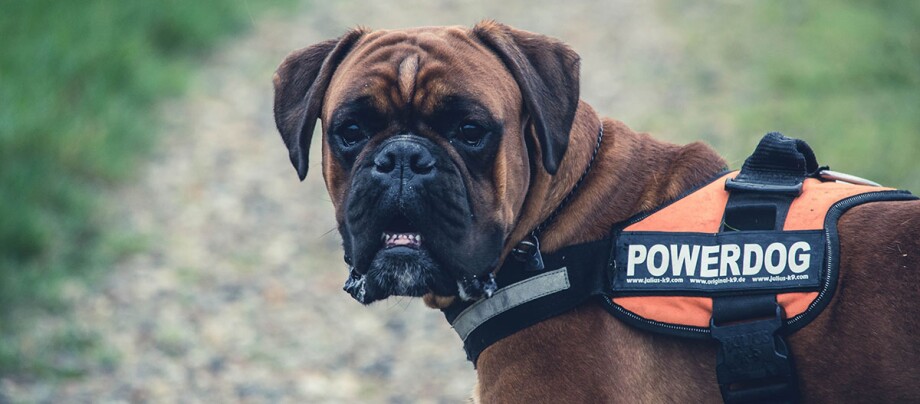
Not at all macho. The image of a bad-tempered, drooling biter has long been shaken off by German boxers who are now appreciated for their qualities as friendly, easy to care for family dogs with a particular connection with children. If you’re looking for a high-quality family member then a German boxer would be happy to apply for the position!
NewsletterGerman Boxer
Breed | German Boxer |
Origin | Germany |
Classification | Pinscher, schnauzer, mastiff breed dogs |
Size | Males 56 to 63 cm at shoulder height – Females 53 to 59 cm at shoulder height |
Weight | Males 30 to 34 kg – Females 23 to 27 kg |
Physique | Narrow waists, average, muscular compact, short straight back, small pointy tail |
Eyes | dark eyes, coloured eye lids |
Ears | flat lop ears
|
Coat and colour | Short and smooth flat structure; yellow to brown or flecked fur with a black face and markings (black or flecked fur is nor desired) |
Special features | Overbite is a typical feature; sensitive to cold |
Nature | temperamental, confident, strong nerves, child friendly |
Care | brush regularly
|
Health | Prone to eyelid deformation, hip joint dysplasia, arthritis in the spine and tumours, heart problems, deafness in white boxers, allergies and skin problems |
We have the best products for your German Boxer!
From hunting dog to loved family member
German boxers were well-loved by the noble classes, their ancestors were known as Bullenbeisser (lit. bull biters in German) and would often be used for hunting wild boar. The advantage these dogs had was that with their strong bites they could hold the wild animals until the hunter arrived on scene. They later crossbred and this new breed was given the Boxer name following the term used in Munich “Bierboxer” (this term comes from the fact it looks like they had been drunkenly punched in the face). The first official presentation of the German boxer took place in 1885. In 1924 they were approved to be used as service dogs in the rescue and police services as well as guide dogs. For a long time German boxers had their tails and ears docked as standard by breeders. Thankfully, this practice has been banned today.
Temperament and character of a German boxer
German boxers are confident dogs with a healthy self-esteem. Their temperament is cheerful, bright and active. These dogs need to be kept busy and have room to exercise. They care deeply for their owners, however, they will be sceptical of strangers at first. They tend to be stubborn, but don’t worry, with some tough love you can stop this. In dangerous situations German boxers display protective qualities and will defend the ones they love and their territory with fervour. German boxers tend to dominate other dog breeds. If they’re not stimulated enough Boxers tend to become nervous and hyper.
Training and keeping a German boxer
As with all dogs, boxers should also learn basic obedience and basic commands. Since intelligent German boxers like the attention of their owners, they can be relatively easily trained. To do so, it’s important that they accept you as the leader of the pack. Their strong nerves mean German boxers are good in homes with children – nothing will shock them. In order to get these positives out of your pet, you need to care for them properly as well as ensuring they get a lot of exercise and entertainment. They are ideal family dogs, they are also happy to be used as working dogs, for example, as rescue and service dogs or as protection and guard dogs. Give your Boxer at least one and a half hours’ exercise a day by walking them or letting them run with you on your bike or horse. As fit and agile as they are, they love sport and games which tire them out. Lively boxers are not completely suitable for life in the big city. They need at least a garden which they will happily guard for you.
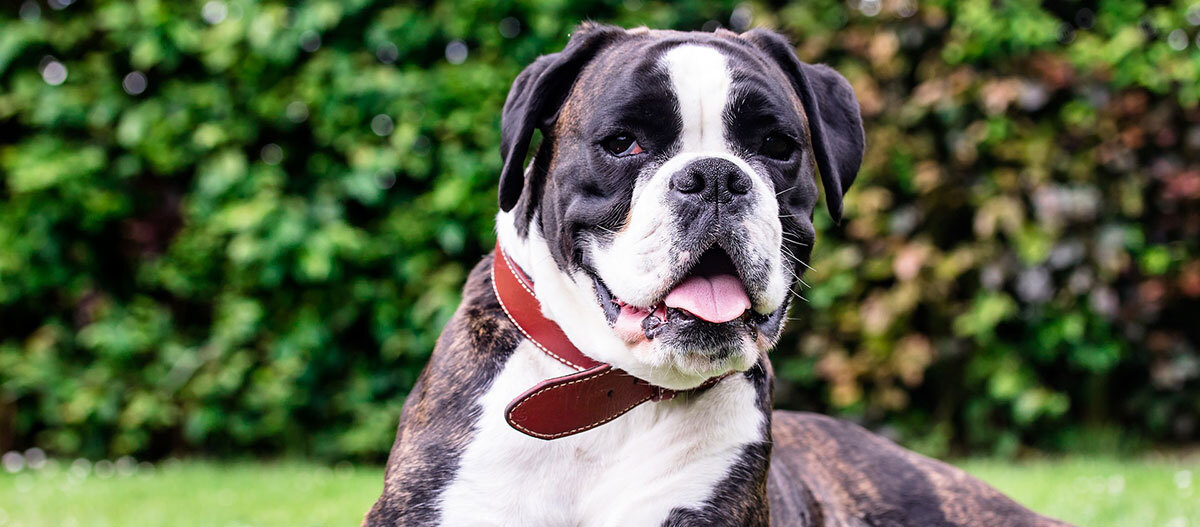
Care of a German boxer
Caring for your German boxers coat is simple. Brush occasionally with a soft curry comb suffices. Due to their thin fur they are, however, sensitive to the cold. Make sure that your dog doesn’t get too cold. The breed is prone to deformation of the eye lids (entropion) and they are prone to dysplasia and arthritis as is the case with other big dogs.
